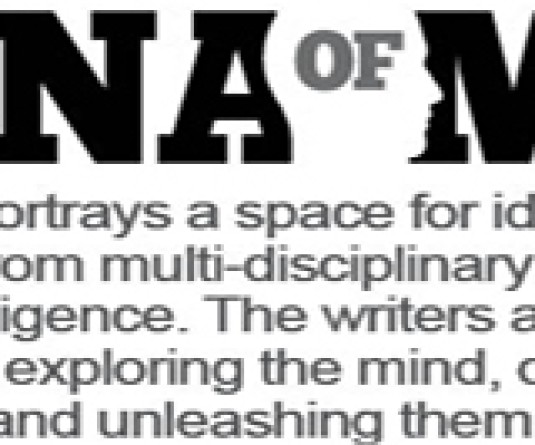
E Lawrence
All of us are surrounded by history, whether we study it or not. History is found in our social traditions, holidays, ceremonies, education, religious beliefs and practices, political and legal systems etc. One does not need to be qualified or practicing historian to think, talk or write about the past. Anyone can have an interest in history. Anyone can read, study or discuss it. However, quite a common citizens does not really bother or care about the glorious past of the ancestors; either because they are reluctant or confined or rather self satisfied. If anything, many people are obsessed with history. Perhaps what we do not really care about is the context in the textbooks. The problem is that the official history contained in our textbooks simply does not seemed true to many. Quoting K.M Shrimali, former History Professor of Delhi University “It is a matter of concern that with little knowledge about history is trying to fabricate and thrust their ideas. It is a terror of a different nature”. Today, Researchers and scholars are engulfed with motives towards quality research and fact findings. Perhaps in some cases their writings or theses are diverted from the mainstream of their actual objectives due to different issues and unavoidable circumstances.
Over the recent years there has been a considerable increase in military historical publications where plenty of military historical events are falsified and distorted and according to authors of these publications, “only the most essential” of those are actually considered. Such simplification may lead to subjective reflection of the march of history since some facts or reasons are viewed as primarily important and others, contrariwise, are treated as insignificant.
The subjective approach is caused by a number of reasons. Firstly, any specific event is the result of a set of reasons; on the other hand, one and the same reason can have several results. Secondly, certain reasons may either directly influence a specific result or they may have an indirect impact on this or that historical event. Thirdly, various reasons tend to differently interact with the result. Moreover, in the course of time the degree of influence of one and the same reason can vary. Fourthly, plenty of many other events may take place simultaneously with the event at issue. To simplify the process of historical studies, a number of specific problems are normally outlined, which enables the researchers to focus on the issues they are primarily interested in.
Another major problem with writing History is the disdain for evidence. The disdain for facts, in turn, has discouraged the systematic collation of primary evidence. Historical facts are not static since new discoveries are constantly thrown up by archaeology, genetics, and climate sciences and so on. When people argue so vociferously about current events, it is not surprising that historians disagree on thousand year old events. The real problem is that so much personal and sometimes political capital gets invested in certain narratives, that evidence is simply not updated. Quoting authority is seen as more important than primary material.
The general public can be acknowledgeable and interested in the past but unlike historians, their knowledge is not usually based on rigorous standards of research and evidence. Popular history is often simplified, ‘cherry-picked’ and distorted to the point of corruption. There are several reasons for this. Most people tend to value story over analysis. When thinking about the past, they like clear and simple explanations. They are often assigning to someone’s responsibility, liability or ‘blame.’
Therefore the objectives of writing history should be free from bias, political influence, religious hegemony, pride and status. What had happened should remain its original form and nothing should compromise the facts and events of the past for any glorification. It should be particularly wary about forming generalized assumptions and making generalized claims. The truth of writing history should be told and re-tell, organize seminars and should be kept alive. This will make history more exploration and discovery than memorizing a static narrative. Moreover, it will give citizens a feeling of ownership over their own story and broader worldviews.
The writer is Assistant Professor in Department of History, St Joseph’s College (Autonomous) Jakhama.






